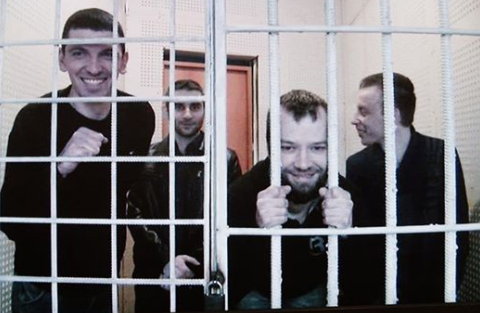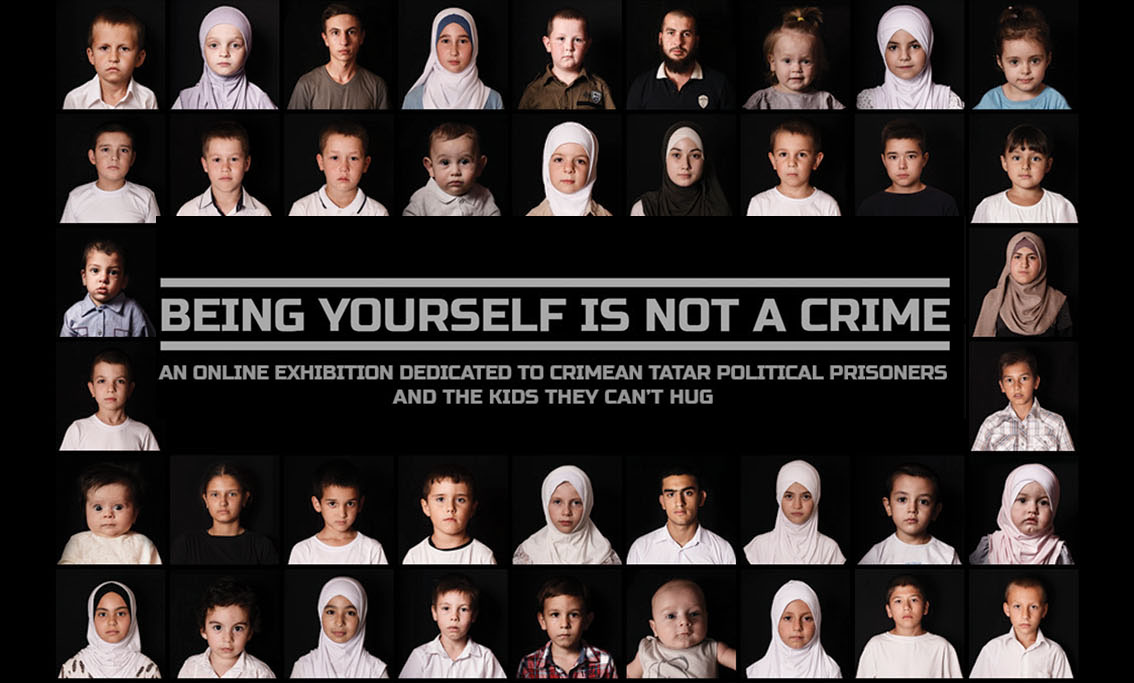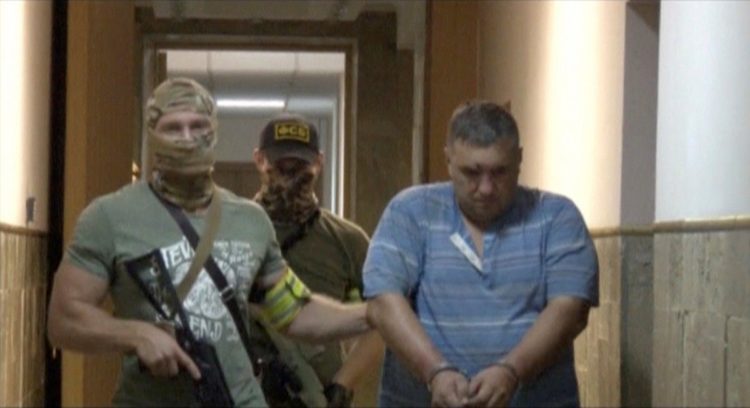Emir-Usein Kuku, a Crimean Tatar human rights activist who the Russian occupation authorities of Crimea have accused of terrorism, has made public his appeal to Russian President Vladimir Putin and Russian Prosecutor General Yuri Chayka. In it, he demands to free the Ukrainian pokitical prisoners held in Russia and occupied Crimea.
The “Crimean solidarity” association, which offers support for political prisoners and their families, reported Kuku had proclaimed the appeal before a court hearing in Russia’s Rostov-on-Don, where he had been put on trial together with five other Crimean Tatars accused of participating in the Islamic organization Hizb ut-Tahrir.
In the document, Emir-Usein Kuku stresses he is a citizen of Ukraine, calling out Russia’s forceful conversion of the population of the peninsula it occupied into its citizenship, and expresses his solidarity with other Ukrainian political prisoners on hunger strike in Russian prisons: Ukrainian filmmaker Oleg Sentsov, who announced a hunger strike on 14 May, “until Russia releases all the Ukrainian political prisoners,” Crimean farmer Volodymyr Balukh, who kept raising the Ukrainian flag above his house and had on 1o March started a hunger strike in protest of his fabricated trial, and Ukrainian soldier Oleksandr Shumkov, who claims he was taken over the border by force and launched a hunger strike on 23 May in solidarity with Sentsov. (Detailed information about each man are in the post below).
“I declare a hunger strike from 6:00 of 26 June until the issue of 70 political prisoners (the full list is given in the resolution of the European Parliament from 14.06.2018, and was presented by Ukrainian Ombudswoman Liudmyla Denisova []) held in Russian prisons, penal colonies, is solved. Apart from that, I demand to stop repressions against Crimean Tatars and other believers in Crimea,” the appeal states.
Emir-Usein Kuku has lost 9 kilos in the 16 days of his hunger strike. He is one of six Crimean Tatars from Crimea’s Yalta region who were arrested during February-April 2016 and accused of participation in the pan-Islamic organization Hizb ut-Tahrir. The others are: Refat Alimov, Arsen Dzhepparov, Muslim Aliev, Inver Bekirov, Vadym Siruk.
Russia’s Supreme Court banned Hizb ut-Tahrir in 2003, having included it in the list of 15 organizations considered “terrorist.” After annexing Crimea in 2014, Russia is attempting to foist this internal Russian ban on the occupied part of Ukraine, despite Hizb ut-Tahrir being legal in Ukraine and most other countries. The group advocates for the expansion of Islam but rejects violent measures. None of its members have ever committed terrorist acts.
Under the Russian legislation, proof of executing or conceiving terrorist acts is not needed if one is incriminated under Part 2 of Article 205.5 of Russia’s Criminal Code, which Emir-Usein Kuku is accused of violating. “Proof” of belonging to Hizb ut-Tahrir is considered sufficient of convicting a person of terrorism.
After Russia’s annexation of Crimea in March 2018, Crimean Tatars and other pro-Ukrainian activists started disappearing. Emir-Usein Kuku joined the Crimean human rights contact group and monitored how the authorities were dealing with the disappearances. His activities did not go unnoticed: starting from 2014, he was several times visited by an FSB employee, who proposed to Emir-Usein to become an informer. The Crimean Tatar refused and paid the price: the FSB came to his house, where he lived with his wife Meriem and two children, with two raids.

After the second one in February 2016, he was arrested under the accusation of “membership in a terrorist organization” and “planning to forcefully seize state power.”
Emir-Usein Kuku’s lawyer Oleksandr Popkov claims that the only “proof” in the materials of the case is a recording of a kitchen talk where participants discuss different political issues: the fate of Crimea, the place of Islam in both countries, religious postulates, including those of Hizb ut-Tahrir. The video recording was made by one of the active participants of the discussion who was deliberately touching upon sensitive topics and is likely a representative of the special services and a fake witness.
The recording does in no way prove the involvement of participants of the discussion in Hizb ut-Tahrir, or their planning of any terrorist acts.
Four Crimean Tatars, Rustem Vaitov, Ferat Sayfullaev, Nuri Primov, and Ruslan Zeytullaev, have already been sentenced in a nearly identical case. The case was also based on a recording of a kitchen talk about political and religious issues recorded by a person who is almost surely a FSB informer, without mention of any terrorist acts, or proof of belonging to Hizb ut-Tahrir. Zeytullaev, as the purported “leader” of a Hizb ut-Tahrir cell, got 12 years in jail. The others got 5.
Emir-Usein Kuku faces 15 years in jail.
 Kremlin’s captives from occupied Sevastopol: Rustem Vaitov, Ferat Sayfullaev, Nuri Primov, and Ruslan Zeytullaev. Photo: Anton Naumlyuk
Kremlin’s captives from occupied Sevastopol: Rustem Vaitov, Ferat Sayfullaev, Nuri Primov, and Ruslan Zeytullaev. Photo: Anton Naumlyuk








